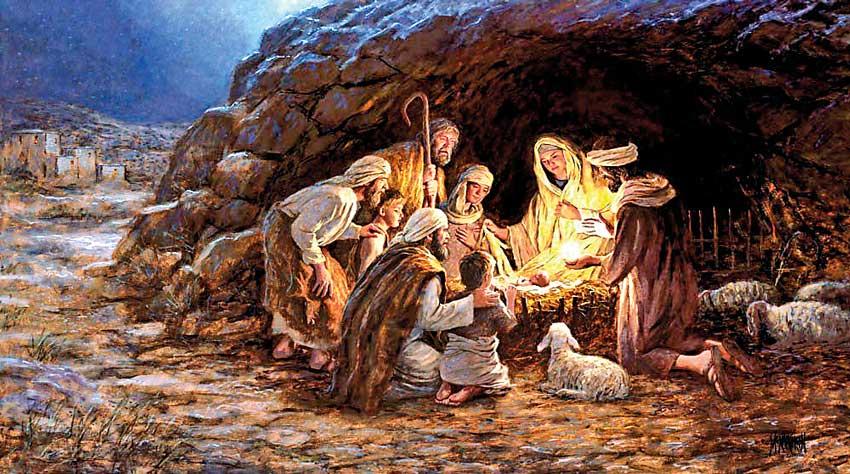Reply To:
Name - Reply Comment

 Christmas is the feast of God becoming human in Jesus, being born of the Virgin Mary, like one of us, in all things except sin (Phil 2: 7; Heb 4:15).
Christmas is the feast of God becoming human in Jesus, being born of the Virgin Mary, like one of us, in all things except sin (Phil 2: 7; Heb 4:15).
By becoming human, Jesus has identified with our humanity thereby affirming its intrinsic worth and has raised it to a dignity beyond compare.
Every human being has an innate dignity which is universal, inalienable and inviolable and hence, as theologian Elizabeth A. Johnson says, “Whatever disfigures or damages a human being is an insult to God’s own self.”
St. Paul writing to the Philippians said: Jesus, “who, being in the form of God, did not count equality with God something to be grasped. But he emptied himself taking the form of a slave, becoming as human beings are” (Phil 2:6-7). St. Paul spoke of the humility of Jesus in becoming a human person. St. John, the beloved disciple of Jesus, said: “For this is how God loved the world: he gave his only Son so that everyone who believes in him may not perish but may have eternal life.”(Jn 3:16).
When John the Baptist sent his disciples to ask Jesus whether he was the Messiah, Jesus told them, “Go back and tell John what you hear and see; the blind see again, and the lame walk, those suffering from virulent skin-diseases are cleansed, and the deaf hear, the dead are raised to life and the good news is proclaimed to the poor” (Matt. 11:2-5).
Besides what is recorded in the above-mentioned text of St. Matthew and of Lk 7:18-22, Jesus had fed also the hungry, mixed with people who were excluded from worship in the Temple and from social relationships, loved the children, ate with the sinners and also forgave them. He went about bringing together the scattered, the neglected and the marginalized and created a community of persons, thereby promoting also their inclusion and equality. He was born as the boundary-breaking Prophet and Saviour. The words and deeds of Jesus were revolutionary since they went against the prevalent understanding of the Law and the social and religious codes and practices.
Through the above-mentioned actions, Jesus was able to say, “I have come so that they may have life and have it to the full.”(Jn 10:10).
Since the birth of Jesus proclaims a message of the intrinsic worth of every human person, such a message makes us share people’s pains caused by the Easter bomb blast and also the anxieties of the following categories of people: the unemployed and the under-employed, under-nourished mothers and children, the widows, the orphans, the families living without proper shelter, health / medical care, sanitary facilities, without opportunities and facilities for the education of the children.
Such a de-humanised Sri Lankan situation should make the followers of Jesus Christ to transcend their undue attachment to status, race, caste, ethnicity, religion, language etc. and commit themselves to serve the oppressed, the poor and the marginalized, imitating Jesus with a spirit of humility.
Do we, therefore, hear the holy and salvific message of Jesus Christ coming out today from our shanty towns and villages, from agricultural and fishing villages, from plantation slums, from jobless and homeless families?
By becoming human and touching the earth, Jesus has affirmed also the sacredness of Mother Earth. Creation, therefore, has assumed new worth and meaning. The celebration of Christmas, therefore, is inviting us to re-commit ourselves to care also for Mother Earth since she is also crying “due to the harm we have inflicted on her by our irresponsible use and abuse of the goods with which God has endowed her” (Pope Francis, Laudato Si, no 2) and for exploiting her for monetary gain in today’s society.
Both the liturgical/religious and social celebrations of the birth of Jesus Christ must embody concern and care for the oppressed masses and for the ‘weeping’ infra-human creation. Though Jesus was born in a poor stable, his eternal message is for the whole of creation (human and infra-human beings).